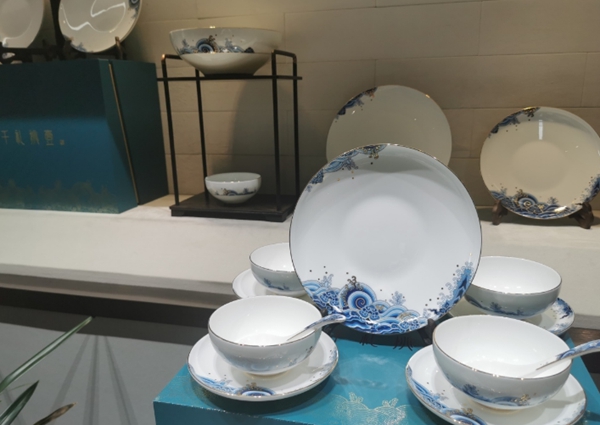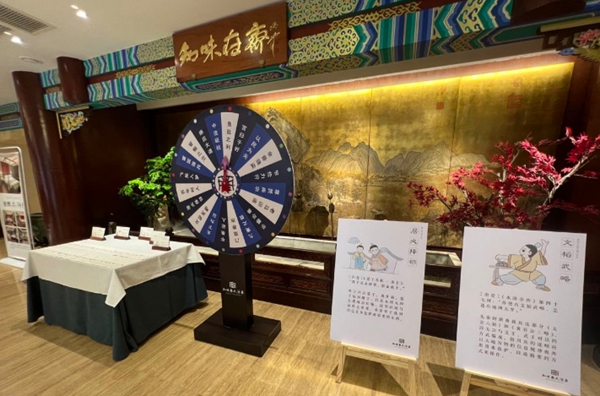
As the birthplace of the ancient Qi culture, Zibo city – located in East China's Shandong province – has spared no effort in inheriting and commercializing its fine traditions.
The municipal government has organized a series of meetings to help its local businesses in various sectors – including cultural tourism, real estate, cultural innovation and urban development – to research, develop and market cultural and creative products.

An exquisite set of household porcelain goes on display in Zibo. [Photo/WeChat ID: zibofabu2014]
As a result, there are now a wide variety of products that feature not only traditional Qi culture – such as ceramics and cuju, the sport played in ancient China that resembles modern football – but that also have practical commercial value, like tea and spices.
A recent Handcrafts in Zibo creative design competition collected cultural and creative works that represented the enduring links to Qi culture.

Zibo launches cultural activities that are raising the public profile of Qi culture. [Photo/WeChat ID: zibofabu2014]
To raise the culture's public profile, the city has introduced activities that promote related games and products. One such project with international fried chicken powerhouse KFC, for example, has been a particular hit with teenagers.
A host event for the 2022 Intangible Cultural Heritage Shopping Festival, held in Yanshen ancient town this June, attracted loads of visitors and the 83 intangible cultural heritage displays exposed people to Qi culture.
What's more, Zibo has been ramping up efforts to boost the commercialization of its cultural sector. The Hongye shiyan tourist area, for instance, recently cooperated with Chinese National Geography – a monthly publication similar to the US-based National Geographic magazine – to build a high-end cultural and tourism industrial area, in an endeavor that has reaped both economic and social benefits.